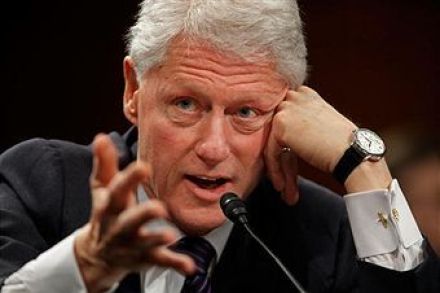Next time, do a Bill
So it’s all down to the next debate. The election will probably be decided in 90 minutes, each segment of 20 seconds for every day of a new five-year mandate. In which case, what is the one thing David Cameron will need to take away from last night’s debate, his “take-home”, as a US analyst might call it, to win decisively and get into the 37, 38, 39 percent range that he needs for the Tories to win a majority? He needs to do a Bill. Clinton, that is. Last night, the Tory leader did far better than in the previous debate. He started a bit slowly, and improved as


















